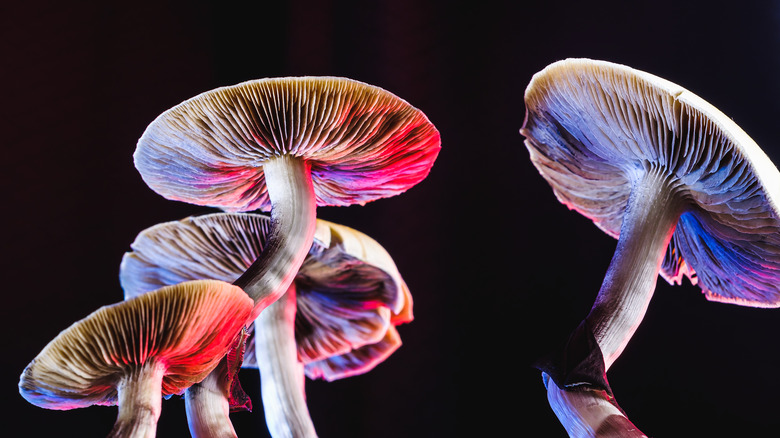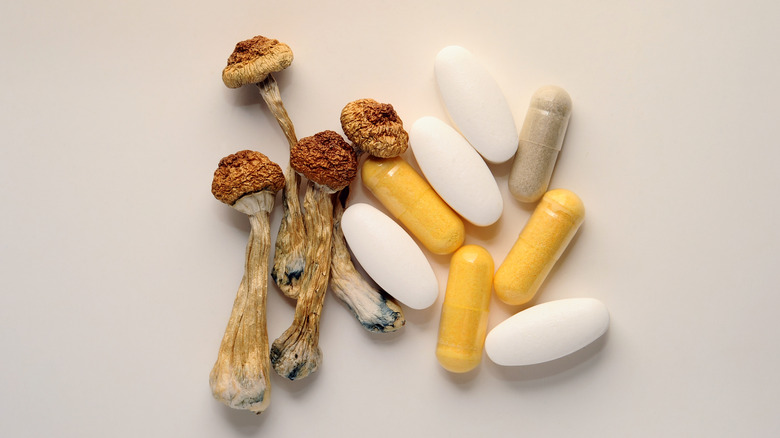Study Finds Microdosing Psychedelic Mushrooms Can Improve Mood And Mental Health
When you hear the word psychedelics, you might imagine people having hallucinations or intense, out-of-control trips. But microdosing, which has become an area of interest in the scientific community, isn't that. And a new study published in Scientific Reports supports previous research showing that taking small amounts of psychedelic mushrooms might actually help improve mood and mental health.
Microdosing is the practice of taking a dose of psychedelics so small that it has no hallucinogenic effects (via Medical News Today). It usually involves taking just 10% of a regular dose of psilocybin, which is the active ingredient in psychedelic mushrooms. While people have used naturally-occurring hallucinogens for thousands of years, they eventually became classified as drugs of abuse with no medical use.
The U.S. 1971 Controlled Substances Act halted previous research, which didn't pick up again until around 2014 (via Harvard University). Due to this renewed interest, some studies have indicated that microdosing could be a treatment for mental health conditions.
A large study exploring the benefits of microdosing
Up until now, studies have mostly been small and observational. The study published in Scientific Reports that explored the effects of microdosing on mood and mental health is said to be the largest longitudinal study to date on this subject, and also one of the few to include a control group (via Medical News Today).
Researchers followed 953 microdosers for one month, as well as 180 people who didn't microdose. Participants completed questionnaires and tasks on their mobile devices at the start and end of the study, assessing mood, cognitive function, psychomotor ability, and symptoms of anxiety, depression, and stress. Researchers found that in comparison with those who didn't microdose, those who did reported improvements in mood and symptoms of anxiety, depression, and stress. Female microdosers experienced greater improvement in depressive symptoms than men, and those over the age of 55 experienced larger improvements in the psychomotor test than non-microdosers.
The study comes with limitations though. Study authors noted that there may have been some response bias, as participants were self-selected and therefore perhaps felt positively about using psychedelics already (via Scientific Reports). Although there was a control group, there was no placebo group, meaning that the effects reported may have been due to participants expecting positive change rather than pharmaceutical effects of the drug (via Medical News Today).


